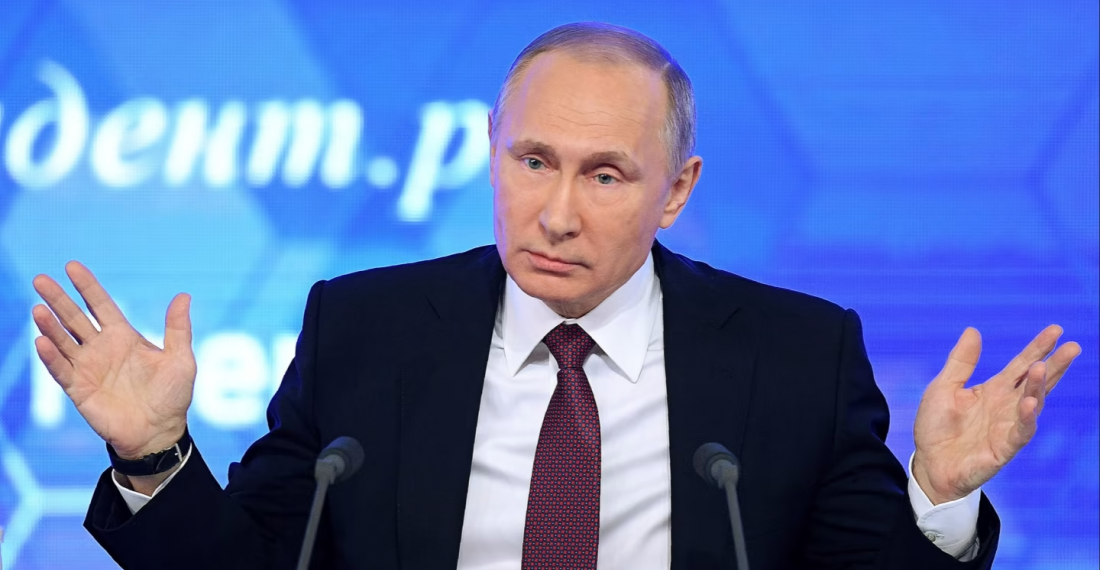The Kremlin announced on Monday (12 December) that Russian President Vladimir Putin's annual press conference will not be going ahead this year amid a badly faltering invasion of Ukraine, an unpopular partial mobilisation, and increasing economic pressures.
The annual tradition dates back to the early days of his presidency, and has only ever been cancelled once in 2005. The event did not go ahead between 2009 and 2011 while he was prime minister.
The event has been used to give the impression that Vladimir Putin is in touch and sensitive to ordinary people's concerns by offering them a "direct dialogue" with the Russian president. In reality, the phone call marathon - in which Putin spoke for four hours in 2021 - is a highly controlled event attended by mostly pro-government journalists fielding friendly questions. While some 500 journalists attended in 2021, representatives of outlets labelled as "foreign agents" were not permitted to ask questions.
The decision regarding this year's press conference was announced by the Kremlin in a phone call with reporters. The Kremlin spokesperson Dmitry Peskov did not give a reason for its cancellation, saying "the conference won’t happen before the new year. We hope that the president will still find an opportunity to talk to journalists", for example while on foreign visits.
Whether Vladimir Putin will make his annual State of the Union address, which is a legal requirement under the constitution, is still under review, Peskov added. The Russian president last addressed parliament in April 2021, 10 months before the full-scale invasion of Ukraine.






